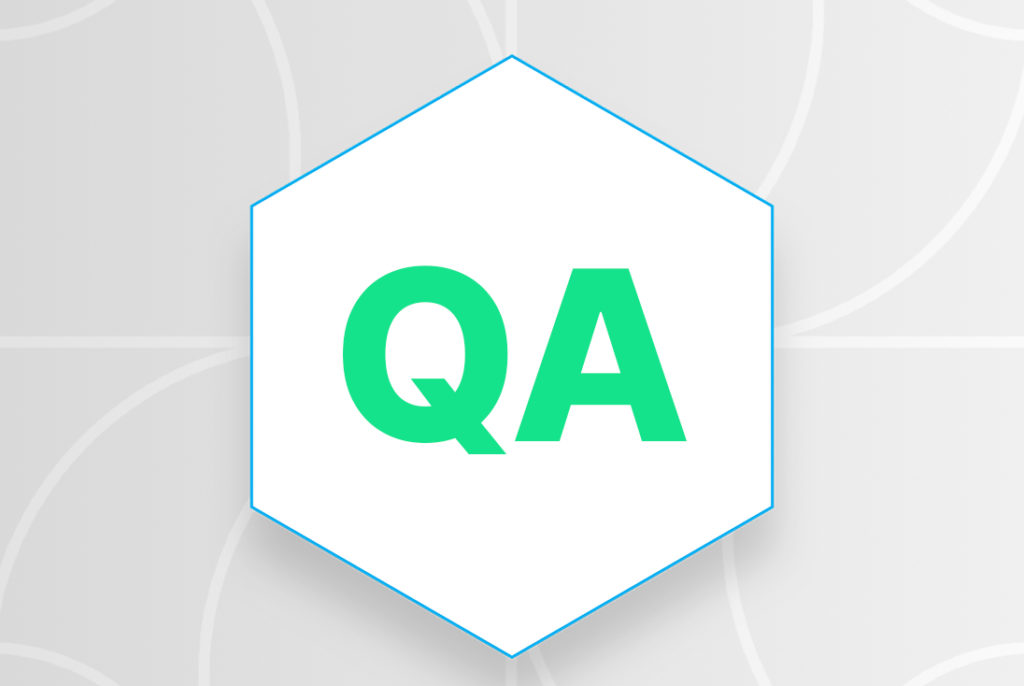
There’s no single path that can bring someone into a career in technology, and Quality Assurance is a common entry point throughout the tech industry, including at Kopius.
Someone in QA is responsible for improving software development processes and preventing defects in production. The truth is that the industry hasn’t done a great job of making QA a great job. It’s common to hear stories about long thankless hours, short notices, disorganized processes, and the after-thought QA engineers get to the process. We’ve worked hard to get QA right at Valence.
We have built QA into our agile engineering processes, which is as good for our employees as it is for our clients. What we do with QA is common for Agile but for the gaming industry It’s not typical process, structure, or employment path, so we have outlined a few of the things that make our QA program unique at Valence.
The driving principle of our QA program is that we recognize that our QA engineers are vital members of a cross-functional team. We are invested in each QA engineer and their career path, making mutual long-term commitments. Valence is in the software industry, where QA engineers can enjoy greater career longevity, professional growth, and be ahead of the curve with latest and greatest technologies.
A typical day in QA at Valence
“My main objective is to deliver a quality product to our customers. We test products from CX perspectives and from functionality perspectives to ensure best-in-class experiences on all platforms like web browsers, mobile, and tablets.”
Raanadil Shaikh, Quality Assurance Lead
Our QA team works on technology-driven projects, testing features across multiple platforms, focusing on the end-customer and their experiences.
Valence’s teams follow a standard agile scrum practice. We involve the QA engineers as we are starting and finishing sprints so we can include the QA team’s needs and expectations in our planning. Like many technology firms, our QA team uses pull-requests to trigger testing. The testing person runs test cases as defined in the sprint planning. If the feature meets the acceptance criteria, they’ll be validated.
One of the features of the QA process that makes it so effective is that it is flexible.
“The QAs at Valence have a lot of flexibility to create the structure and testing that is right for the project. In previous QA roles, I’ve had to follow a very strict prescribed process, even if it wasn’t right for the project. That’s not the case here.”
Emily Bright, QA Analyst
Bright adds, “QA is heavily impacted by the people you work with. Our job is to find issues with the work that other people do. Everyone at Valence is very open and accepting of the QA team’s input, and they tend to presume that the QA engineer is correct, which is really nice.”
What’s also unique is that we share tools across teams as much as possible. Our QA team uses the same tools as the rest of the Engineering team. Our QA team is empowered to work with different versions of code (using the GIT command line) and deploying builds to their local machine/cloud stack. Our QA team doesn’t write code, but they interact with code. This isn’t as common a practice at other firms as it should be.
Automation is a big part of QA at Valence, which dramatically improves the work experience of our team. We use automated testing, so our QA engineers don’t have to repeatedly run the same tedious processes, which is exhausting and uninspiring. Thanks to automated Acceptance Tests, we get to focus our QA engineers’ attention on the more interesting aspects of the project, the new features, the Ad Hoc, and the end-to-end customer experience. It’s a big part of the reason that our QA team is happier than most.
“Monotony is the biggest risk of many other common QA roles, but that’s not the case at Valence because of the variety of projects and technologies we use,” according to Jaison Wattula, who oversees Valence’s QA program. Shaikh agrees, “I’m challenged every day because I’m not limited to one product for a long time – I’m testing the latest products on different platforms, which is really cool.”
Additionally, Valence QA engineers are often front and center with the client, our developers, and their peers. Our QA team touches every feature and needs to understand the project goals, development principles, and approach as well as any other member of the team. Since they are the first line of defense against bugs and errors, the project goes better when the QA engineers collaborate with cross-functional teams (including clients) and participate in decision-making.
“Valence is a special place because there is a real appreciation for diverse perspectives and viewpoints – I love collaborating with coworkers and clients to find the right innovation for a project.”
Raanadil Shaikh, Quality Assurance Lead
Bright adds, “When I find issues (which is the fun part), I usually either come up with a solution, offer a workaround, or find another way to help the team solve the bug. This is faster, more collaborative, and an important part of my contribution.”
While we have typical days, we don’t have typical projects. Our QA team needs to be comfortable interacting with new and emerging technologies. Valence has a varied roster of services and technologies, and our QA team interacts with all of it.

Who thrives in QA at Valence?
Our team is successful because the people here are passionate tech enthusiasts who are detail-oriented, curious, and want to contribute to the whole development process.
Valence has an Always Learning culture, and this is particularly true of the QA team. People who love learning new technologies, platforms, tools, and best practices thrive here. “There are never-ending learning possibilities,” says Shaikh.
Ambitious tech enthusiasts who want to use QA as a stepping stone to other parts of the industry do well here. While it’s rare to transition from QA to code writing, the QA engineer role is a clear incubator role to grow into other technology positions and expand skills. Because our QA engineers are exposed to the process and every role within that process, they are uniquely positioned to choose their next career step within Valence. QA engineers can grow into project coordination, project management, dashboarding and visualization, and more. It’s the right place to start if you want to grow into the non-code and more abstract technology roles where you guide and support client projects.
“We work hard to hire the right people for our QA team, and even with all that effort, nothing makes me happier than seeing a member of our QA team get promoted into other areas of the business.”
Jaison Wattula, Director of Reporting and Automation
Does this sound like you? We’re hiring!
